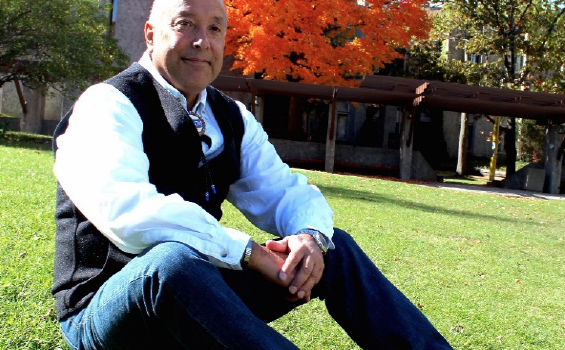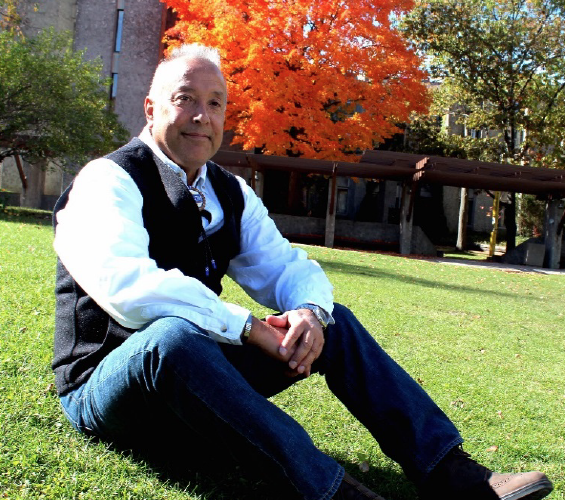


Though speaking for only an hour or so, the founder of Trent University’s Indigenous Environmental Studies and Sciences Program, Dr. Dan Longboat, kicked off this year’s Indigenous Knowledge Gathering with plenty for the audience to consider.
The annual event, hosted by Humber College, brings together faculty, students, artists, comedians and more to celebrate, learn and carry forth Indigenous knowledge. Longboat, one of the keynote speakers at the three-day event, began by explaining its roots.
“Indigenous knowledge talks to us about how we can be the best human beings we can be. We’re looking at our relationships, responsibility, and this idea of reciprocity,” he said.
“How those things within nature help us as human beings, and our responsibility to help those things in nature.”
Longboat, who has a Ph.D. in Environmental Studies from York University, emphasized the idea of applying Indigenous knowledge to modern-day issues, such as environmental problems.
“The extinction of species, inevitable ecological collapse as well as many other things — that happens on our watch,” he pointed out.
“Our contribution as Indigenous peoples to the pool of human knowledge [to address these problems] has not even begun yet.”
Longboat, a Mohawk from the Six Nations, is known for his traditional Haudenosaunee knowledge.
Though the work of implementing Indigenous knowledge into everyday life may be in its early stages, Longboat is hopeful; that hope comes, in part, from timing. “As the emergence of Indigenous knowledge comes forward, it’s only been this generation that’s had the capacity to understand and to ask questions,” he said.
“Our mothers and fathers, as well as many other generations, were so inundated by colonization…their job was to keep clothes on our back and food on the table.”
Another part of that hope? Today’s youth. “Young people have such a great capacity, their intellectual as well as physical and spiritual capacities,” Longboat said.
“They are starving for the kind of knowledge that works to connect them to each other and connect them to place.”
Humber’s Elder and Advisor on Aboriginal Relations, Shelley Charles, asked for Longboat’s advice on a difficult problem she currently faces at the college.
“I’m always trying to create dialogue. [But] what I’m experiencing is surprising to me. I haven’t been prepared for the discrimination within groups of people in a classroom,” Charles said.
“I wanted to know if you had any experience with that, and how we might go forward.”
Given such a loaded but essential question, he responded frankly and wholeheartedly.
“That’s the sad state of our existence right now. There’s no easy answer to that, [but with] Indigenous knowledge…it’s all about love. It’s about compassion and sharing and generosity,” Longboat said.
“How do we manifest change based on love, kindness compassion? It’s going to be a long struggle. But the steps we’re making now, even those baby steps, are taking us much closer.”
Although Longboat talked about using our minds and hearts when learning about Indigenous knowledge, he also mentioned the need for personal action when thinking about its future.
“If you want to honour your ancestors, honour the Earth…roll up your sleeves to get the work done,” he said.
“[For] revitalizing the human spiritual integrity…we have to be prepared to do the work…and engage multiple knowledge systems.”
To learn more about the 2018 Indigenous Knowledge Gathering, click here.
